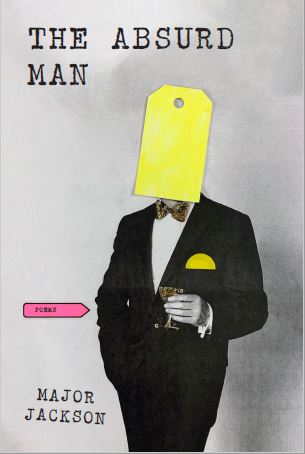 In The Absurd Man, Major Jackson savors the complexity between perception and reality, the body and desire, accountability and judgment.
In The Absurd Man, Major Jackson savors the complexity between perception and reality, the body and desire, accountability and judgment.
Inspired by the philosophy of Albert Camus, Major Jackson’s fifth volume subtly configures the poet as “absurd hero.” With intense musicality and buoyant lyricism, The Absurd Man follows the titular speaker as he confronts the struggle for meaning in a technological world and the difficulty of social and political unity, finding refuge in intellectual and sensuous passions. At once melancholic and jubilant, Jackson considers the journey of humanity, with all its foibles, as a sacred pattern of discovery reconciled by art and the imagination.
Praise & Reviews
In Protest or Celebration, Four Poets Evoke a Sense of Endings – The New York Times
At the end of his richly introspective and engagingly vulnerable collection, The Absurd Man, Major Jackson, referring to his double self, also a character in the collection, observes wryly, ‘Tragically, he believes he can mend his wounds with his poetry.’ And in this everything hopeful, elegant, daring, and unsettlingly absurd about The Absurd Man is spoken. Jackson embraces the existential absurdity of this ‘tragedy’ and yet, in doing so, he gives us poems that dare to challenge hopelessness with language.
–Kwame Dawes, author of City of Bones
No American poet wears his genius as lightly as Jackson, whose poems here reach new heights of companionable style.
–John Freeman , LitHub
Jackson’s eye is laser-sharp and wry…Throughout the book, [his] weaving of mythology and literary references serve as context for confrontations with personal ghosts.
–Publishers Weekly (starred review)
Erudite…Moments of startling linguistic play interrupt Jackson’s elegant semiformal style… [The Absurd Man] bring[s] us back to an existential truth that only poetry’s fierce tenderness can offer.
–Sandra Simonds , New York Times Book Review
Poems in Major Jackson’s The Absurd Man are fashioned from masks and personae, impersonations and thrown voices. How ironic then that this fifth and most daring book yet sings deeply, solemn and vulnerable, a blues for our times. One of the root meanings of the word absurd is ‘out of tune.’ To be out of tune with these years of American absurdity, Jackson’s adroit lyrics resonate through a kind of fission, the collision of selves and personal histories yielding a most genuine ore. These poems face the music of their own making.
–Gregory Pardlo, Pulitzer Prize–winning author of Digest